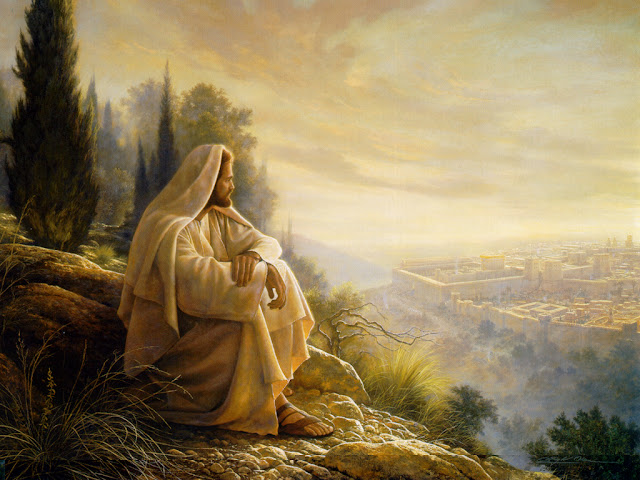Briggs has been reading the book of Job, so it's wandered into our conversations lately. This morning he commented how full of himself Job was in chapter 29 when he finally vents his frustration and grief upon his friends and God. He referenced this passage:
"When I went out to the gate of the city, when I prepared my seat in the square, the young men saw me and withdrew, and the aged rose and stood; the princes refrained from talking and laid their hand on their mouth; the voice of the nobles was hushed, and their tongue stuck to the roof of their mouth. -Job 29:7-10As sometimes (perhaps even often) happens, Briggs and I see a passage differently. In this case, I agree more with the perspective that Job's reminiscences are yes, perhaps slightly inflated, but mainly a romantic longing for the better, sweeter days of his past. I don't think he's full of hubris as much as nostalgia. To me, this fits Job's stellar character--a man described as upright in the best ways, a man who made the hard choices and generally held strong.
In contrast, Briggs feels Job is spewing out a stew of pent up vanity---the vanity and self-accolation all men are capable of when pushed to their limit, even the best. And maybe it doesn't have to be one or the other; surely, man is full of conflicting aims and perceptions--a hot mess of good intentions and bad executions. If we are honest with ourselves, even our intentions are suspect at times.
On another Job musing, I came across a great quote this week that noted that Job held his own until his friends showed up. Ha! I thought that funny, sad, and unfortunately at times, true. I suspect we all are guilty of saying stupid things when trying to relate to our friends in their sufferings. Walk a mile first, as they say. It's much easier to be a bad friend than a good one. For the above reasons, I like this too:
 |
| A wise word, though I hesitate to propagate LDS sources. |
The bottom line is although I hate the suffering of Job, I'm thankful for his faithful account. I'm thankful for the record of his troubles, his obtuse friends, his outbursts, his raw outrage at the hand God dealt him. In one sense, it's true--we are all dealt seemingly uneven hands--some appear much better than others. Some strike us as particularly unjust. And yes, we know that in the final estimation, God doesn't owe any of us anything. He's God after all.
All the same, I find great comfort in knowing that God can handle my temper tantrums---that He's strong and present in the thick of the thickest difficulties. That He's God. Somehow that's enough.









